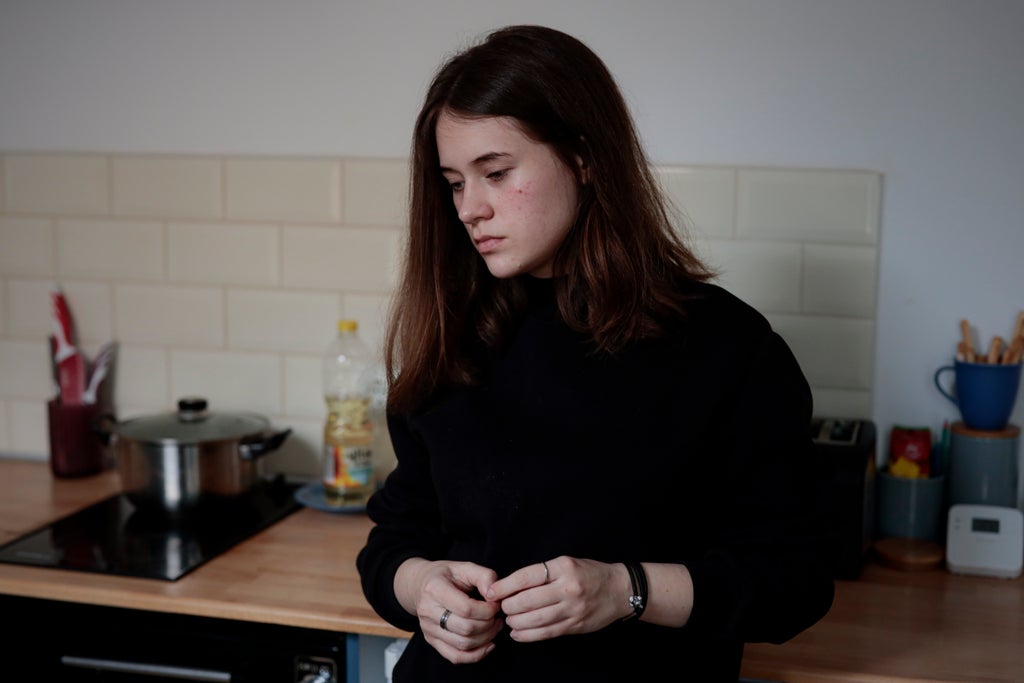
Nataliya Hibska quickly brushes her teeth and makes the bed. She is rushing to her new job.
From a small hostel room in eastern Warsaw, Hibska, a Ukrainian refugee, is slowly rebuilding her life, which was abruptly upended by Russia’s invasion of her homeland.
European Union member nations like Poland and Romania — the two neighbouring countries to have received the most refugees from Ukraine — have launched programs to help them integrate.
The 47-year-old former manager of a private education centre from Kharkiv, in eastern Ukraine, fled her hometown after a second wave of shelling.
When bombs struck a nearby military warehouse, rattling her home, she knew it was time to leave and seek refuge for herself and her 11-year-old son.
"We were afraid to go out, to let them go out into the yard, we were afraid to let them ride bicycles or play football.
“We were just so scared and we decided that that was enough. It was time to flee," she said, describing the decision she and many of her neighbours were forced to take.
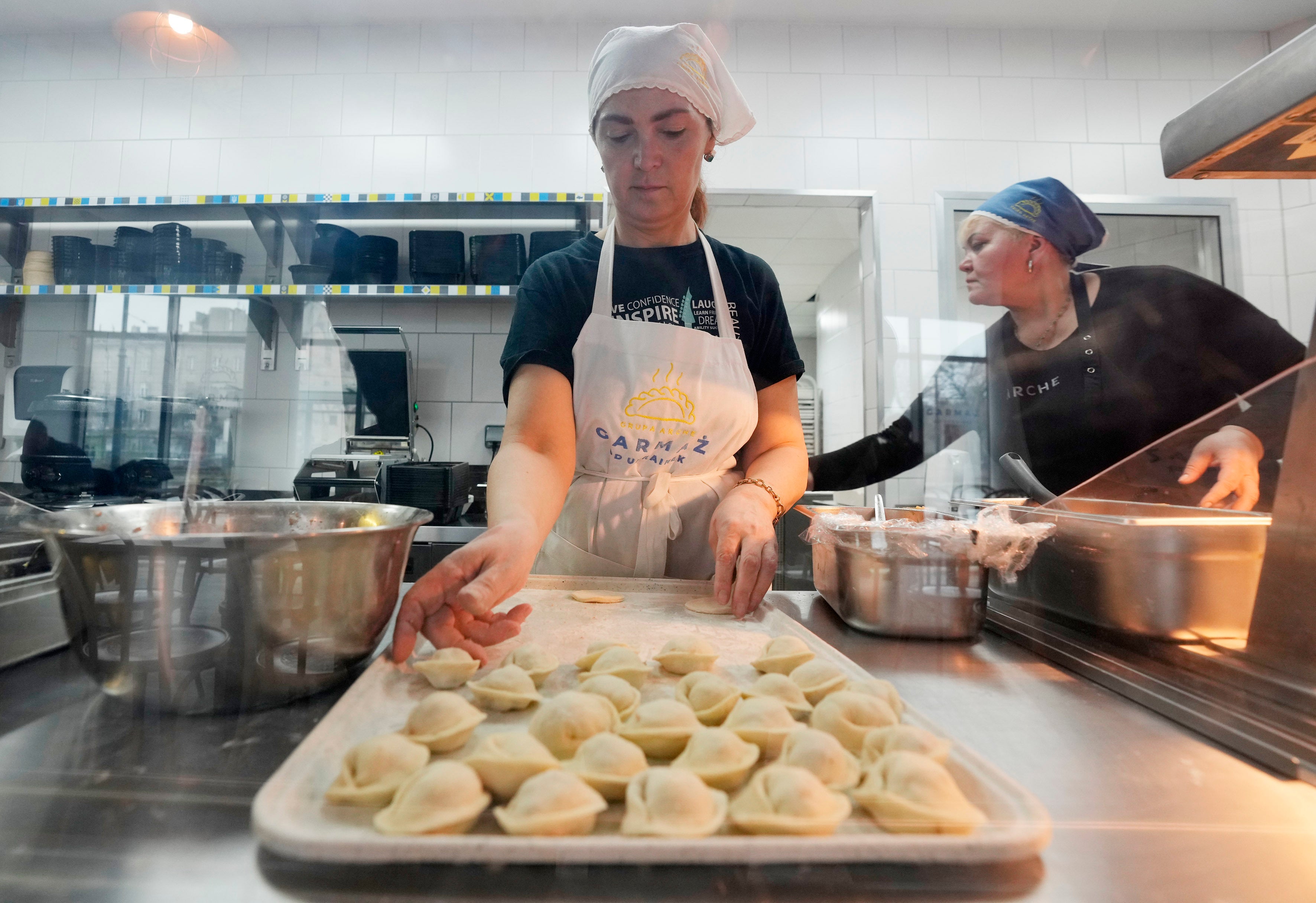
With only some basic belongings they embarked on what became a challenging five-day journey to the safety of Poland.
Three weeks on, and by a combination of help extended by ordinary people in Poland and policies put in place at the national and municipal level, Hibska and her son are starting to feel safe.
They have a simple yet welcoming home. Her son is enrolled at a local school, and she has started a new job as cook at a Ukrainian food bar launched specially to provide employment to refugees.
The workday starts early with food preparation ahead of the lunchtime rush.
Hibska and the five other Ukrainian women working here, all recently arrived refugees, roll out dough and chop fillings for traditional Ukrainian dumplings, pelmeni, that are a staple.
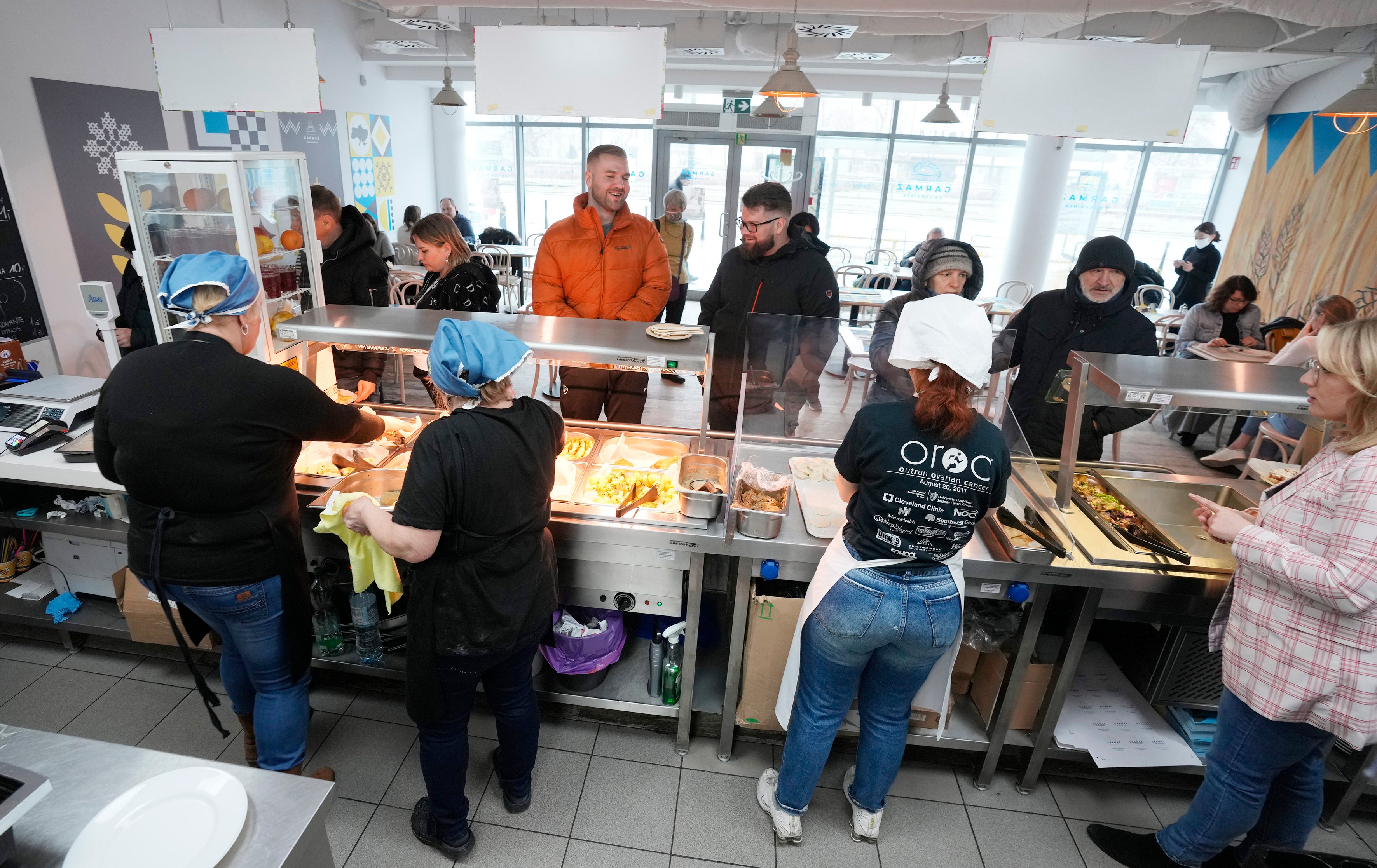
"I used to have five people working for me and I organised (youth) camps," she said, reflecting on her past life in Kharkiv. "I am not embarrassed by the fact that currently I am working in a kitchen."
Warsaw city authorities say work helps refugees integrate but is also filling vacancies in the health sector and in education, where special classes are being launched to assist newly arrived Ukrainian children.
Of the more than 4 million refugees that have fled Ukraine, over 2.4 million have crossed into Poland. While many have travelled onward throughout Europe, plenty have stayed in Poland which is offering free temporary accommodation, medical care, education and some social benefits. Some 625,000 refugees have sought and obtained Polish ID numbers entitling them to all that for 18 months.
But living off benefits was not something Nataliya would accept for too long.
"Volunteers help us with everything. We can live off Poland, but I don’t see that as a good thing," she said. " I need to work. You won’t get much doing nothing."
Her new job helps provide for her and her son, Roman, and anything left over she hopes to send to her parents and husband, still living in Kharkiv.
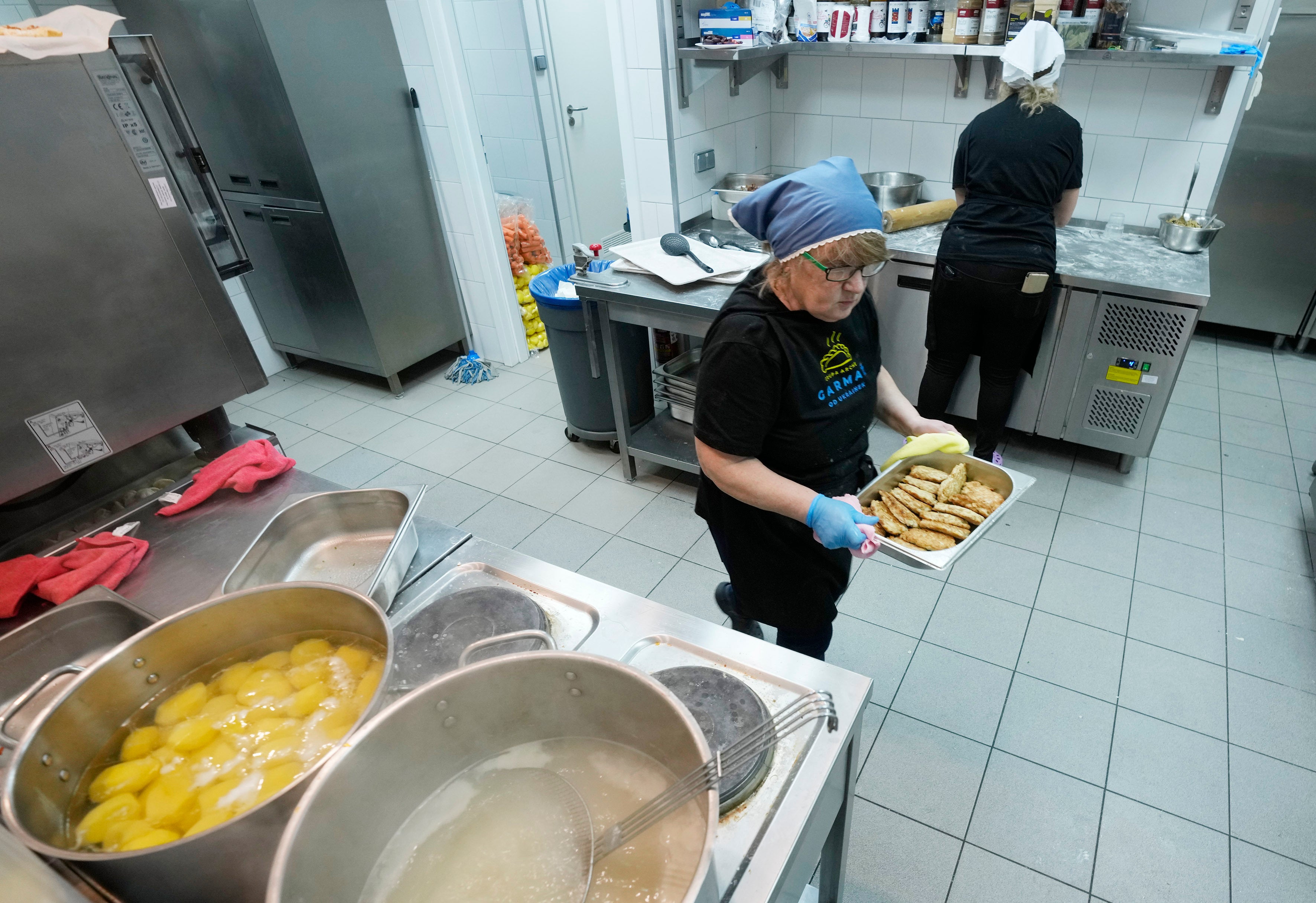
Her good fortune in Poland was thanks to a free hostel run by a family of developers and hotel owners. The same company launched a Ukrainian food bar specifically to provide jobs to refugees.
The place opened 10 days ago and is quickly gaining in fame, with customers intent on helping Ukrainians all the while enjoying a good meal.
"The forms of help are evolving" said Karolina Samulowska awaiting her order. "At first there was aid, sandwiches, railway stations."
Now, at the bar "on the one hand the products are here and promote the country, on the other hand the money moves on, giving meaning to the refugees’ lives."
As a regular flow of customers comes by to pick up lunch, the restaurant’s manager, Dorota Wereszczynska, reflects on the success.
"We were not expecting such popularity," she said. "Our motto is "You buy. You eat. You help."
Further south on Europe’s map, Romania has taken in more than 600,000 refugees from Ukraine.
Flavia Boghiu, the deputy mayor of the central city of Brasov, says the key to integration is to help people be "as autonomous as possible."
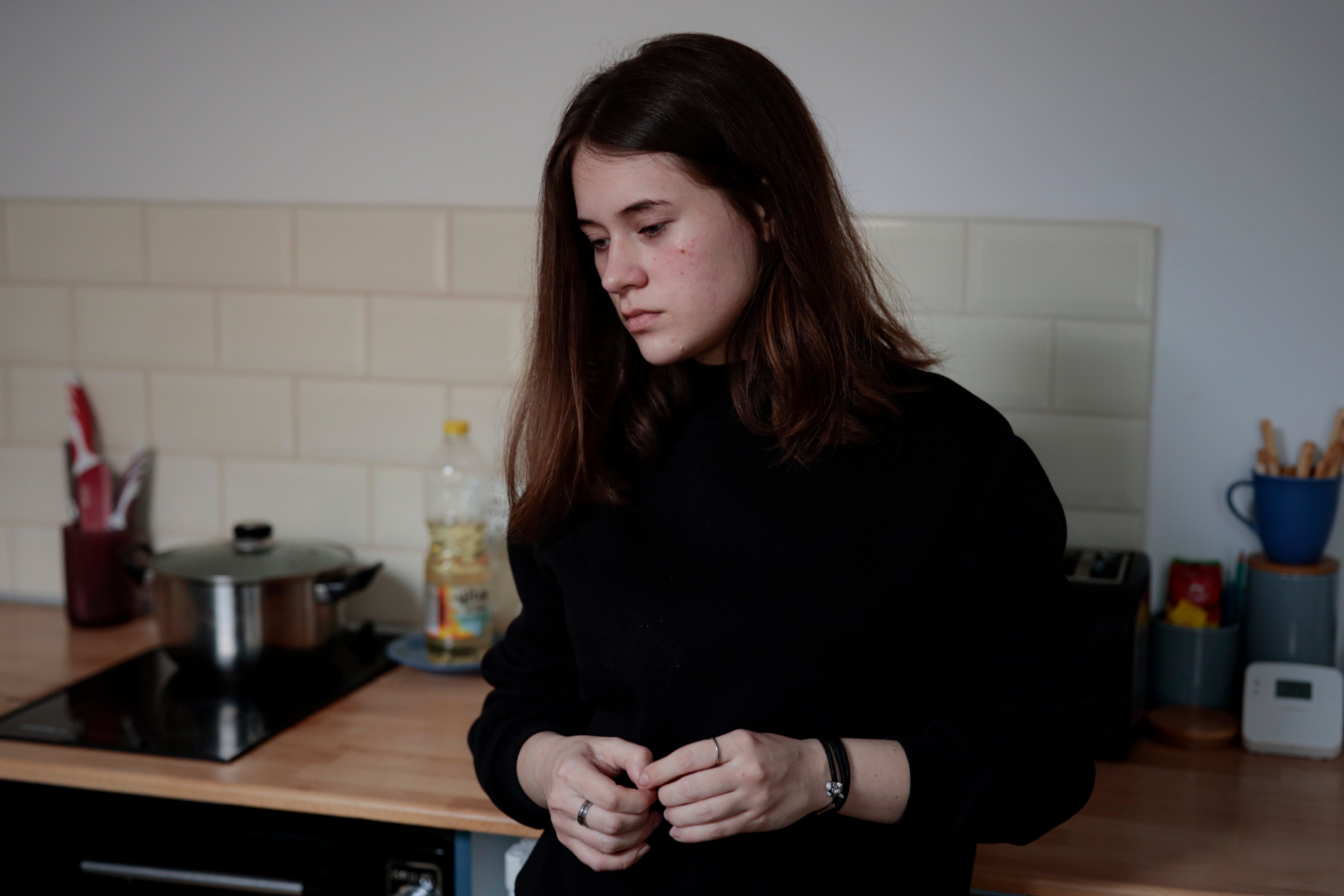
The city’s refugee centres offer support and information on work offers, kindergartens and other activities, she told the AP, and local authorities proudly boast that of 1,200 refugees who arrived in the city, more than 75 per cent want to stay.
The employment process is "much slower than normal, because most of them don’t have paperwork with them. Also you need to discuss with them to understand their particular situation. If you have a mother with three children you need to see what you’re going to do with the children (while) she’s at work," Boghiu said.
Four generations of Anastasia Yevdokimova’s family fled from their homes near the Black Sea. The 21-year-old beauty industry worker came to Brasov with her grandmother, her mother and her 3-year-old son.
Brasov drew them with its impressive architecture and access to nature "which helps to distract from the circumstances," Yevdokimova said.
They’ve already had to seek urgent medical care for the child and found it to be quick and attentive. That reassured them.
Another refugee, 27-year-old Karina Buiukli, a human resources manager from the Black Sea port city of Odesa, and her family have been offered free accommodation with a Brasov couple, but were not expecting the great kindness they have met with.
"Our hosts, the owners of this apartment, are so kind and now we’re just like friends," Buiukli said. "They showed us the town, they asked us to their house, it seems like we’ve know each other for a long (time)."
The Independent has a proud history of campaigning for the rights of the most vulnerable, and we first ran our Refugees Welcome campaign during the war in Syria in 2015. Now, as we renew our campaign and launch this petition in the wake of the unfolding Ukrainian crisis, we are calling on the government to go further and faster to ensure help is delivered. To find out more about our Refugees Welcome campaign, click here. To sign the petition click here. If you would like to donate then please click here for our GoFundMe page.







